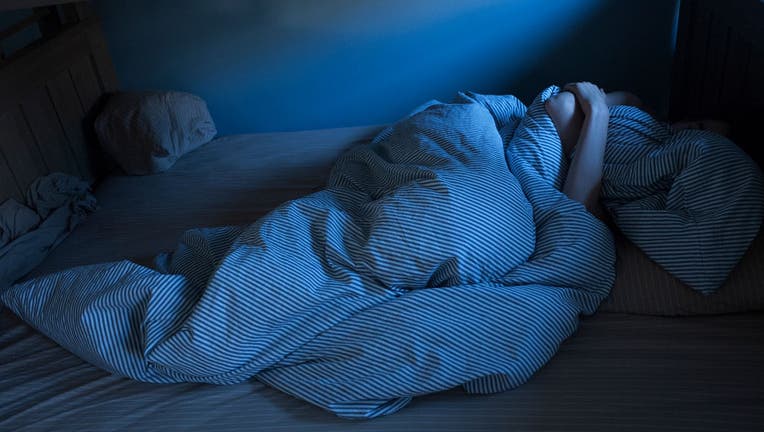Bed rotting: TikTok's latest trend comes with health warning

BROOKLYN, NY - JANUARY 13: A teenage boy sleeps through most of the late morning on January 13, 2018 in his home in Brooklyn, New York. (Photo by Andrew Lichtenstein/ Corbis via Getty Images)
There's a new social media craze on the rise: bed rotting.
Then trend has become popular on TikTok, where a person will stay in bed all day doing various activities with no effort such as eating, scrolling the social media and binge-watching. The unofficial definition, per Urban Dictionary, is "the Gen Z term for staying in bed for days on end, binging on Netflix, Tik Tok and Hinge."
Advocates say it can reduce stress and anxiety and is a form of self-care
But many experts say it can be more harmful than beneficial.
"As a mental health professional, [I think] this trend is misleading, concerning, and unhealthy," Catherine Del Toro, a Florida-licensed mental health counselor with Grow Therapy, told Healthline.
RELATED: Watch: Young woman wakes up from anesthesia, finds out she has a boyfriend: 'He's so cute'
"Self-care is about taking care of your general health and wellness, and bed rotting does not promote this," she added. "The tendency to stay in bed and do nothing all day but scroll, watch TV, eat, and nap are typical traits of a person who is depressed."
Experts agree while a day of rest is beneficial, anything longer than that could signal depression.
Dr. Ryan Sultan, a board certified psychiatrist, research professor at Columbia University in New York and medical director of Integrative Psych NYC, who treats many young patients, called the bed rotting trend "fascinating."

The benefits of good sleep
Most adults need 7 or more hours of quality sleep each night, according to the National Institutes of Health. Kids and teens need even more.
"In our current culture, with too much to do, too many expectations and too much productivity, many individuals are feeling burned out and often aren’t getting enough sleep," Sultan told Fox News Digital.
"It’s easy to see why taking time off to lie around — literally — is appealing," he went on.
"In many ways, this is beneficial. It’s a chance to clear your mind, recharge and regroup before returning to life in a better frame of mind."
On the flip side, however, he said a long-term need or desire for "bed rotting" could be a warning sign.
RELATED: Would you try a McFlurry hash brown sandwich? It's the latest social media trend
"If it becomes a habit, it is likely a sign of depression," Sultan said. "People should be mindful if bed rotting become a pattern of behavior."
Spending too many daytime hours in bed — awake or not — could also wreak havoc on sleep schedules, the doctor cautioned.
"Our brains are fine-tuned for sleep in darkness and alertness in light," he explained. "Lying in bed half-asleep during the day will worsen sleep regulation — and once it’s dysregulated, it’s a challenge to fix."
Dr. Marc Siegel, professor of medicine at NYU Langone Medical Center and a Fox News medical contributor, agreed that while some downtime can be useful in terms of de-stressing and rejuvenation, "prolonged bed rotting is a bad health practice."
Those who lack the motivation to get out of bed should try calling or texting a friend or family member for support, identifying a small errand or task to complete, or reaching out to a medical professional for help, according to Mental Health America’s website.
FOX News contributed to this report. This story was reported from Los Angeles.

